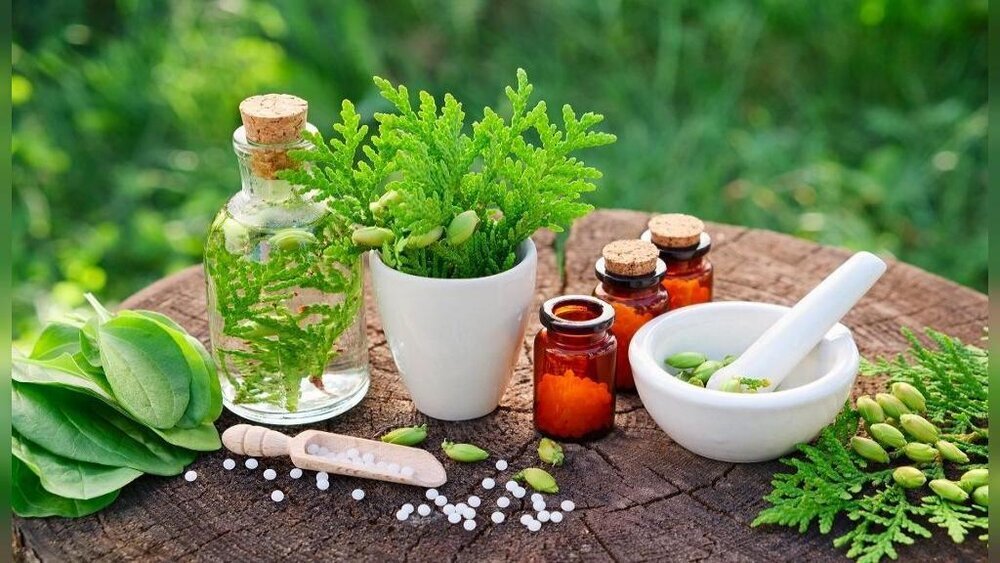Medicinal herbs industry needs long-term planning: VP

TEHRAN - Vice President for Science and Technology, Rouhollah Dehghani, has said the medicinal herbs industry needs long-term planning.
The production of medicinal plants and their economic value should be defined within a framework with a specified operational dimension, and each of the measures should be followed by the relevant institution, he added.
“We are serious about compensating the existing backlogs and we use all the material and spiritual tools and capabilities in this field,” IRNA quoted Dehghani as saying.
Several important measures, including the establishment of a medicinal plant refinery, should be followed up by the vice presidency in cooperation with executive bodies, he stressed.
One of the plans of the Ministry of Health is to compensate for medical treatment using herbal medicines.
In this line, 60 items of herbal medicines have so far been covered by insurance, Nafiseh Hosseini Yekta, the director of the health ministry’s Persian medicine office has said.
One of the problems the patients faced was the high price of herbal medicine prescribed by medical experts, she stated.
Stating that traditional medicine should be cheap and accessible to patients, she added that gradually, other herbal medicinal items will be added to the insurance coverage.
One of the general and basic policies of the Health Ministry is the development of Persian medicine tourism, and the necessary interactions with the Ministry of Cultural Heritage, Tourism, and Handicrafts have been carried out in this regard, she announced.
Iran signed three memorandums of understanding with Serbia, Venezuela, and Iraq for the development of technologies in medicinal plants, natural products, and traditional medicine.
The agreements were signed on the sidelines of the 6th National Festival and Exhibition of Medicinal Plants, Natural Products, and Iranian Traditional Medicine which was held in Tehran on November 1-4, 2022 with the presence of 240 companies.
Business delegations from Russia, Serbia, Iraq, Pakistan, Afghanistan, Tajikistan, Venezuela, Oman, India, and Gambia attended the exhibition.
Serbia, Brunei, Belarus, and Iraq were among the countries interested in meeting their needs through Iranian knowledge-based companies.
After negotiations, Serbia requested to import Iranian products, especially herbal supplements, cosmetics, and medicinal products.
Also, the result of negotiations with Iraq reached a stage where Iranian knowledge-based products in the field of medicinal plants will be exported to the neighboring country.
Brunei also announced its readiness to use Iranian knowledge-based products.
The export revenue of medicinal plants is estimated at $700 million.
Out of 2,500 medicinal plants, 1,800 of them are endemic to Iran.
The country with its own strong history of traditional medicine and a rich ecosystem of medicinal plants has a huge opportunity for increasing share in the national and global market.
National document for development
A national document has been prepared to define perspectives, macro policies, and strategies for technology development in the field of medicinal plants.
The Vice Presidency for Science and Technology is responsible for policy-making, coordination, monitoring, preparation, and formulation of operational plans, directing and following up interactions between the public and private sectors, and providing material and spiritual support for science, information, and so on.
The document seeks to achieve “20 percent of the value of the country’s medicine market by herbal medicines and natural products”, “20 percent of the market value of the country’s veterinary medicine”, and “increase exports of medicinal plants and herbal products to be among the top 10 countries in the world”, “3 percent share of the production of science in the field of medicinal plants”.
By combining the above plans, a comprehensive roadmap for the implementation of the document, which includes 360 separate operational plans, has been prepared and compiled.
In Iran, the area under cultivation of medicinal plants has reached more than 250,000 hectares.
Other measures in this area include increasing the number of knowledge-based and creative companies to 700, increasing health centers to 60, and producing more than 5,000 herbal products.
MG
Leave a Comment